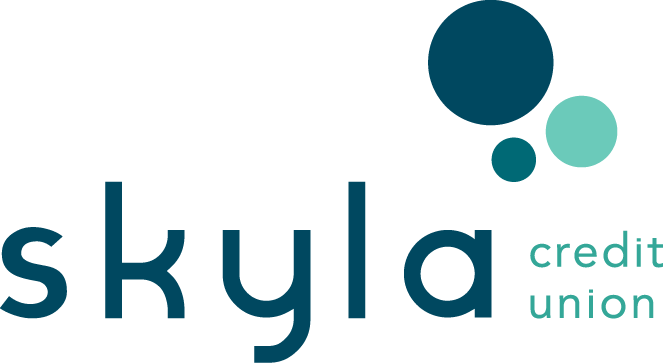Federal vs. Private Student Loans: What's the Difference?

When it comes to paying for college, student loans might be the answer - but not all loans are created equal. The big question is: should you choose federal or private student loans?
Each has its pros and cons, and understanding the differences can save you money and stress down the road.
Don’t worry, As a borrower with federal and private student loans, I'm happy to break it all down so you can decide what works best for you!

here's a quick look at what we'll cover
 what is a federal student loan?
what is a federal student loan? 
Federal student loans are funded by the U.S. government and are usually the first stop for most students. Why? They come with benefits designed to make borrowing and repayment more manageable.
benefits of federal student loans:
- Low interest rates: Federal loans typically have lower interest rates than private loans, which means less money paid over time.
- Flexible repayment options: Borrowers can choose plans like income-driven repayment (IDR), which adjust your monthly payments based on your income and family size.
- Loan forgiveness Programs: Programs like Public Service Loan Forgiveness (PSLF) can erase your remaining balance after 10 years of qualifying payments if you work in certain fields.
- No credit check (mostly): Most federal loans don’t require a credit history, so they’re perfect for students just starting out.
- Deferment and forbearance options: If you’re facing financial hardship, you can temporarily pause your payments through deferment or forbearance.
risks of federal student loans:
- Interest accrual: With unsubsidized loans, interest starts accruing as soon as the loan is disbursed—even while you’re still in school. This can increase your overall debt significantly.
- Borrowing limits: Federal loans have annual and lifetime caps. If your cost of attendance exceeds these limits, you’ll need to find alternative funding.
- Default consequences: Failing to make payments can lead to loan default, which has severe consequences like wage garnishment, damage to your credit score, and loss of eligibility for future aid.
- Forgiveness isn’t guaranteed: Programs like Public Service Loan Forgiveness (PSLF) have strict requirements, and many borrowers find themselves disqualified due to paperwork errors, employer ineligibility, or changes in policies.
- Dependency on government policies: Federal loan terms and programs can change with new legislation, which may affect repayment plans, forgiveness options, or interest rates.
- Long repayment terms: Options like income-driven repayment can stretch payments over 20-25 years, increasing the total amount you pay due to interest.
- Parent PLUS loans risks: Parent PLUS loans, while helpful, have higher interest rates and fewer repayment options. Parents are fully responsible for repayment, even if their child doesn’t graduate.
types of federal loans
- Direct Subsidized Loans: (formerly part of Stafford Loans)For undergraduate students with financial need. The government pays the interest while you’re in school, during the grace period, or deferment.
- Direct Unsubsidized Loans: (also part of Stafford Loans) Available to undergrads, grads, and professional students regardless of financial need - but you’re responsible for all the interest.
- Direct PLUS Loans: For graduate students and parents of undergrads. These loans have higher interest rates and require a credit check.
- Perkins Loans (no longer available to new borrowers. Ended in 2017) A need-based loan that was funded by schools and the federal government. Though discontinued, some borrowers are still repaying them.
how to apply for federal loans:
Complete the FAFSA (Free Application for Federal Student Aid). It’s your gateway to federal loans, grants, and work-study opportunities.
 what is a private student loan?
what is a private student loan?
Private loans are offered by banks, credit unions (like Skyla!), and online lenders. They can help fill the gap if federal loans don’t cover all your costs, but they come with fewer perks than federal student loans.
benefits of private student loans:
- Higher borrowing limits: Some private loans let you borrow more to cover additional costs, like off-campus housing or living expenses.
- Potentially lower rates (for good credit): If you or your co-signer have excellent credit, you might qualify for a lower interest rate than some federal loans.
risks of private student loans:
- Fewer repayment options: Private loans don’t offer income-driven repayment or forgiveness programs.
- Variable interest rates: While federal loans have fixed rates, private loans may have variable rates that can increase over time.
- Credit checks required: Your credit score (or your co-signer’s) affects your interest rate and loan approval.
how to apply for private loans:
You’ll need to apply directly with the lender. Be prepared to compare interest rates, repayment terms, and other features.
how do federal and private loan interest rates differ?
When it comes to interest rates on student loans - here’s what you need to know:
Federal STUDENT loans:
Federal loans have fixed interest rates, meaning the rate is set when you take out the loan and doesn’t change for the life of the loan. Rates are determined annually by Congress and are the same for all borrowers in a specific category (e.g., undergraduates, graduate students).
EXAMPLE: If you take out a Direct Subsidized Loan with a 5% fixed interest rate, you’ll pay that same 5% every year, even if market rates rise or fall. |
This is great because fixed rates provide stability, so you’ll know exactly how much interest you’re accruing and what your payments will be.
private student loans
Private loans can have either fixed or variable interest rates.
- Fixed rates: Like federal loans, these stay the same throughout the life of the loan, providing predictable monthly payments.
- Variable rates: These start lower than fixed rates but fluctuate based on market conditions, meaning your rate—and monthly payment—can increase or decrease over time.
EXAMPLE: If you borrow a private loan with a 4% variable rate, it might rise to 6% (or higher) in a few years, depending on market trends, making your loan more expensive. |
This can be risky because, although variable rates might save you money at first, they are unpredictable. If rates increase significantly, your total repayment cost could end up being much higher than with a fixed-rate loan.
 how do I qualify for federal vs. private loans?
how do I qualify for federal vs. private loans?
Eligibility for federal student loans is determined by completing the FAFSA Free Application for Federal Student Aid). Most don’t require a credit check (except PLUS loans), which assess your credit history. On the other hand, private student loans rely heavily on your creditworthiness for approval. If you don’t have a strong credit history, you may need a co-signer.
Looking to improve your credit score? Here are actionable tips to help boost your financial profile and open up more borrowing options.
 can I combine federal and private student loans?
can I combine federal and private student loans?
Yes, you can use both federal and private student loans to cover your education costs, but it’s important to understand how they work together and how repayment will differ.
Federal loans are typically the first choice for students because of their lower interest rates, flexible repayment options, and borrower protections like income-driven repayment plans and loan forgiveness programs. Private loans, on the other hand, can help fill the gap if federal loans, scholarships, and grants don’t fully cover your cost of attendance.
Psst... If you combine federal and private loans, prioritize paying off higher-interest loans first to save money and stay organized with a clear repayment strategy. Use budgeting tools or speak with a financial advisor to stay on top of payments and avoid missing due dates. |
to help... here are some debt payment strategies that I used that have helped me pay off my debt.

 federal vs. private: which student loan is right for me?
federal vs. private: which student loan is right for me?
Start with federal loans if you can. They’re more flexible and student-friendly, making them the best option for most borrowers. But if federal aid doesn’t cover everything, a private loan could be a helpful supplement—just be sure to shop around and read the fine print.
Here's a quick side-by-side look at both loans.
Other Loan Options to Help Pay for College
Federal loans are the most student-friendly, and private loans can fill funding gaps, but state-based and institutional loans are also worth exploring. State loans, offered by state agencies, often feature competitive rates and benefits for residents or in-state students. Institutional loans, provided directly by colleges, may offer flexible terms tailored to students’ needs. Be sure to research all options carefully to find the best fit for your situation.
does skyla offer student loans?
Skyla offers student loans in partnership with Sallie Mae®. These loans are designed to help undergraduate and graduate students, as well as parents, fund higher education at degree-granting institutions. Interested?
what’s next?
Before borrowing, always maximize free money like scholarships and grants. Here are more scholarships with upcoming deadlines in 2025. 2025 Scholarships>
QUICK TIP: Each May, Skyla awards $5,000 Herman Hoose Scholarships to deserving students who are graduating from high school in the current school year and enrolling in an institution of higher education for the fall of that same year. Want to learn more? Check it out > |
If loans are necessary, start with federal options for their flexibility and borrower-friendly features. Then, explore private loans if you need extra funding, or consider state-based and institutional loans as alternative options for competitive rates and tailored terms.
have questions or Need further assistance?
Our Customer Service Representatives are ready to help! Whether it’s understanding federal vs. private loans, creating a budget, or planning your repayment strategy. Feel free to contact our customer service representatives by email or give us a call at 704.375.0183.
As Content Strategist behind the Learning & Guidance Center, Yanna loves showing just how doable finance can be. Whether it’s simple tips, step-by-step guides, or comparison charts, she’s passionate about helping readers take charge and reach financial freedom with confidence
more resources for your financial journey
6 Things You Should Know About Student Loans
Here's a breakdown of what you should know about student loans. From borrowing, repayment tips, and smart strategies to start your college journey right!
10 min. read
7 Steps to Paying Down Debt
Need solutions to pay down your debt and you don’t know where to start? Your answers are here with tools available so you can get started today.
13 min. read





